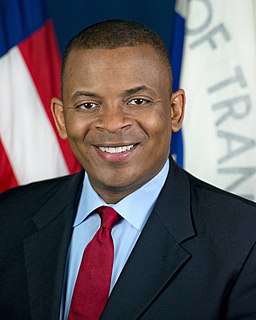A Quote by Bill Lipinski
Freight mobility and movement, while not a sexy policy issue, is a highly important one. Capacity constraints and congestion on our nation's freight rail system create many problems.
Related Quotes
Clearly, there needs to be an increase in the capacity of the railway system. That's why there are these projections of increasing the capacity to carry freight on the railways by 30% over the next five years or so, because the volume of goods moved up and down, imports, exports, and within the country, has grown much larger than the capacity. And this is part of the higher costs to business, because charges, for instance, at the ports become too high and they put up the prices of these goods, whether they are imports or exports. You want to reduce that.
One of the issues that I have raised in that context is our transport system, road, rail and ports. We have raised this before, that the South African economy has grown at a rate that has overtaken the capacity of the transport system. And therefore, we have said that it is necessary to expand our capacity in the ports.
I had a rope around my waist, and the rope was attached into the helicopter in case I fell off. And the shot was a shot that began with Kim Novak going out of a house and getting into a bus. Then it was supposed to go over the countryside and find a freight train on which Bill Holden was standing. And then after seeing a good look at the freight train, the camera was supposed to move up into the sky for the end credits.
The problem with much of the debate over this issue is that we confuse two separate matters: immigration policy (how many people we admit) and immigrant policy (how we treat people who are already here). What our nation needs is a pro-immigrant policy of low immigration. A pro-immigrant policy of low immigration can reconcile America's traditional welcome for newcomers with the troubling consequences of today's mass immigration. It would enable us to be faithful and wise stewards of America's interests while also showing immigrants the respect they deserve as future Americans.































